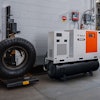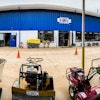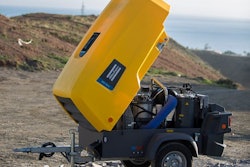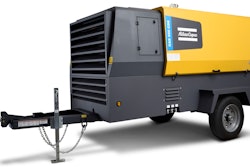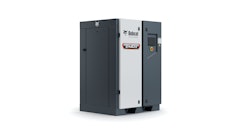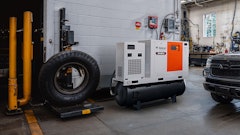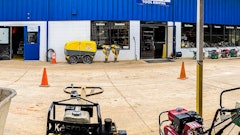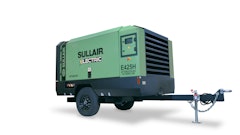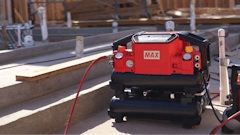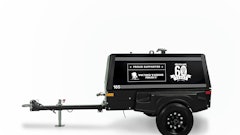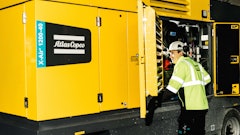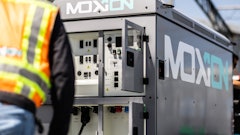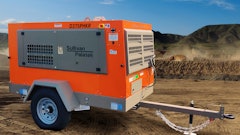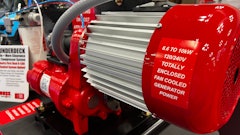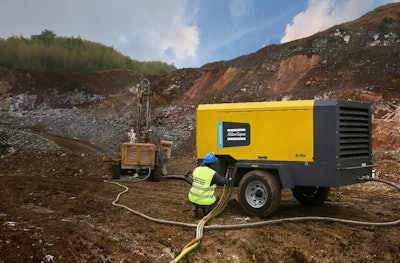
A reliable compressor must be capable of operating in the harshest conditions for extended periods of time. Here are the top seven indicators that a compressor is tough enough to help users tackle the harshest and most demanding projects.
1. Tried and tested
A diversified and rigorous testing process is essential to ensure a compressor can live up to quality standards and withstand the tough conditions of construction landscapes. To ensure they can handle the applications, compressors can be put through performance testing, which includes a leak, strength and temperature test. Tests cover a lifespan of use and replicate all the environments compressors might operate in (for example, low and high altitudes, low and high temperatures or dusty conditions).
2. Modern materials and innovations
Toughness can be optimized through adopting recent developments in material innovation. Look for a compressor built from material that is corrosion resistant, maintenance free and virtually indestructible. 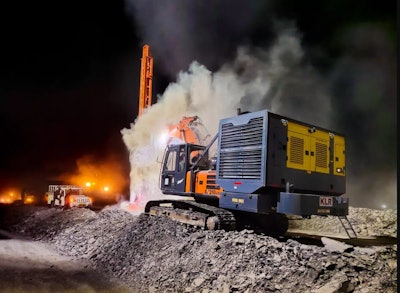 Portable air compressors need to withstand a broad range of heat and pressure levels.Atlas Copco
Portable air compressors need to withstand a broad range of heat and pressure levels.Atlas Copco
3. Handle varying temperatures and pressure points
For portable air compressors to fulfill their tasks, they need to be able to withstand a broad range of heat and pressure levels. They should ensure long-lasting performance in every tough temperature you can imagine, from a freezing temperature of -20 degrees C up to a tropical 50 degrees C. A tough portable compressor should feature high-functioning cooling systems, enabling them to optimally perform in sweltering, dusty underground conditions. They should also undergo full footprint data tests to track flow and pressure optimization, contact surface temperature and starting capability.
4. Weathering the storm
Climate and environment are ever-changing variables in a portable compressor’s life; hence, an inability to adapt will quickly affect machine performance. A truly reliable compressor can weather any terrain and can continuously perform in high altitudes, snow, mud or rain. The most robust portable air compressors are designed, tested and certified with the most demanding conditions in mind, even in outdoor monsoon weather conditions.
5. Reduced downtime
A hint as to how tough your portable air compressor is can be found in how much downtime it accumulates throughout the year. The robustness of the design and use of high-quality durable components are crucial for your machine’s uptime. A portable compressor that is built to work in extreme and challenging conditions will automatically have greater uptime and a longer lifetime.
6. Safety at their core
Operators should feel assured that their compressors can perform reliably without putting themselves or any party at risk. An expertly crafted portable compressor will continue to operate safely, no matter how much strain it endures. Look for verified safety reports and testing documentation online.
7. Maintenance
To complement the machines’ physical resilience, ongoing checkups ensure that they remain tough enough to withstand all their arduous tasks. Tracking technology can help end users capture live data, oversee efficiency and offer maintenance service plans. Tough machines are resilient enough to have a lower maintenance service interval.


